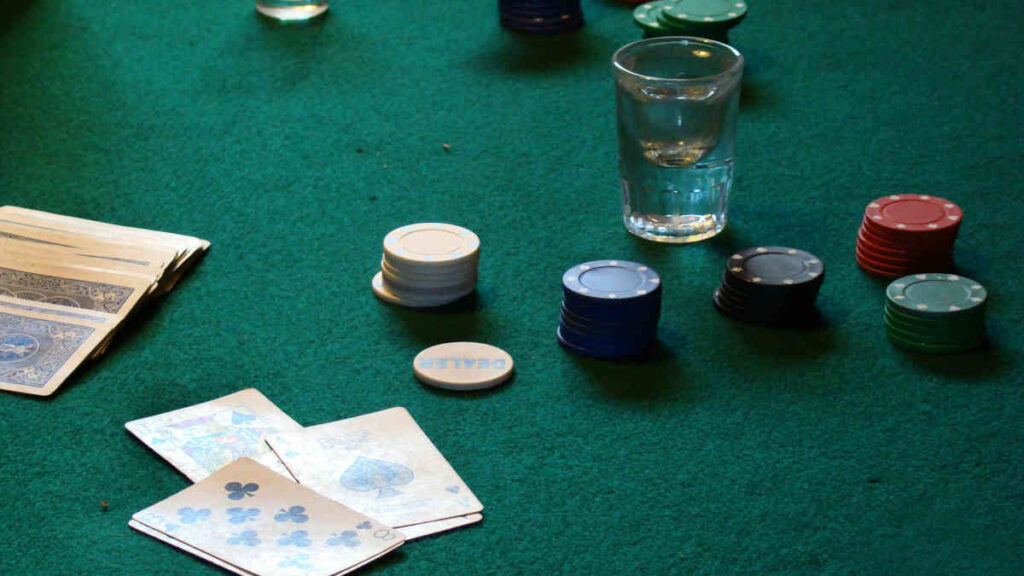If the thought of running your own poker game as a side gig of sorts has ever crossed your mind, this article is for you. Running a private poker game can be quite lucrative, if done right, but there are quite a few moving pieces you need to consider beforehand.
When done right, a private game can bring a steady influx of income, plus, if you love the game, you’ll probably enjoy the whole thing. But, not everything is sun and rainbows, as you’ll also have to deal with some usual problems while trying to make a buck and keep players happy.
In this day and age, you can set up an entire online casino in no time using sites like DSTGAMING, so setting up and running a small poker game seems fairly easy in comparison. However, it may not be as simple as it looks, especially if you’re not just doing it for fun and want to make money too.
Legal Implications: Don’t Break the Law!
We have to start with the obvious: running a home game may or may not be legal where you live. Different countries (and even cities) have different laws regarding these things, and they vary so much that it’s impossible to give any good advice beyond the most important one: don’t break the law to make a few hundred bucks a week!
Thankfully, resources are readily available online these days, and if you’re really serious about setting up a game with higher stakes, you might even want to have a chat with a legal professional. Explain to them what you’d like to do and ask them what the best way to do it is to stay on the right side of the law.
While you’re not likely to ever encounter the level of problems shown in Molly’s Game while running a small $1/$2 game in your basement, it’s always better to be safe than sorry. Some places have very strict anti-gambling laws, and even a small, friendly game could get you in a world of hurt.
All this isn’t to scary you away from the idea, but if you want to be a game runner, you need to learn to be prepared, and getting acquainted with local laws, at least on a high level, is the bare minimum.
Financial Toll: Running Home Poker Games Isn’t Free
It’s great when you come to someone’s private game, and everything is just perfect. Tables are nice, there are new (quality) decks of cards every time, dealers are doing their job, and there are even snacks and drinks. This is the kind of game you want to run!
What you need to understand is that those things aren’t free. Of course, you know it, but, looking from the outside, it doesn’t seem that expensive. Once you put a pen to paper and start doing some math, you’ll see how quickly things add up.
Right off the bat, you’ll need some starting capital to get the ball rolling and acquire the basics: table(s), cards, chips, and someone to do the dealing (unless you want to do it yourself). Depending on the kind of quality you’re going for, this can set you back anywhere from a few hundred to a few grand.
So, before your game starts making any profit, you’ll first need to claw back the money you spent setting the whole thing up, and this can take a little while. It will depend on the stakes and how often the game runs.
Doing the Math: Figuring Out the Rake

Figuring out the rake for your home game is one of the biggest challenges. On the one hand, you need to make sure you end the night with some profit, so it is worth your while. On the other hand, if the rake is too high, people might refuse to play and go somewhere else instead.
Of course, if you’re the only game in town, you can get away with much more, as people are eager to play and will take the hit. If they have options, though, you’ll have to do better than the competition.
Usually, you’ll find that most home games have a rake of between 5% – 10%, capped off at around 10 big blinds (at least at smaller stakes). Of course, this isn’t set in stone. You can see what other game runners are doing and set your percentage to match that.
In reality, you can make a few hundred off of rake running a single table of $1/$2 or $2/$5 of Texas Hold’em for a full evening. Exactly how much will depend on how the game plays, whether the table is full at all times, etc.
On a decent night, you might clear around $500, which isn’t bad. If you give the dealer $100 (plus tips), you’re left with $400 or so.
The question is, do you just pocket that money, or do you spend some of it to make the game more appealing? You can spend some of it on drinks and snacks so the players want to come back. You may want to save a bit and invest in a big-screen TV so your players can watch sports while playing.
It’s really touch-and-go, but from my experience as a player, I can tell you that it isn’t always the fanciest games that get the most players. For one reason or another, it seems like many players prefer it when things aren’t exactly perfect.
The Final Piece: Getting the Players
Once you have the infrastructure in place, one last thing left to do is getting players to show up. You’ve probably been around poker for a while if you’re thinking about setting up your own game, so you have some contacts.
Reach out to some of them, tell them about the game, and see what comes back. You’ll need to be prepared for some headaches, as some of the players who tell you they’ll be there won’t show up. It will take a little while to establish a proper game with a solid base that you can count on.
Also, as a game runner, you’ll be expected to cover all cashouts and probably extend some credit. You don’t have to do it, but your game has much better odds of succeeding if you do. It’s risky, of course, but ease of payments and modern payment solutions significantly increase player retention.
In this case, you, as the game runner, are the one who needs to facilitate payments by ensuring you have enough money to cover some players.
You may think you don’t need to do this, and it may work fine for the first few games, but eventually, you’ll face a situation where you need to credit a player or two or let the game break early, which is a definition of between a rock and a hard place.
Conclusion: It’s a Serious Business
You can certainly make some money running a private poker game, and, as you build up and grow, those profits can increase. But you shouldn’t go into it thinking it’s easy money.
Some of the things described in this article are just the tip of the iceberg. There are many more issues that you’ll come across over your career as a game runner, both on a personal and professional level.
If you love the game and have a passion for it, give it a try, but don’t expect it to be smooth sailing. You’ll have to navigate quite a few storms, big and small, along the way.
